Israel attacks Iran: A historic turning point
Although initial reports indicate that several of Iran’s key military command centers and nuclear facilities were destroyed or at least “degraded,” it is too early to fully assess the effectiveness of the operation. Destroying a complex, dispersed, and heavily defended network like Iran’s nuclear program is unprecedented, even in Israel’s previous operations against Iraq (1981) or Syria (2007), where individual nuclear reactors were vulnerable targets.
The big difference this time is the scale and complexity of Iran’s nuclear system—a complex that is fragmented, hidden deep underground, and capable of rapid recovery. Even if the operation lasts a week, as many sources have suggested, it is doubtful that it will completely destroy Iran’s nuclear potential. Israel may achieve tactical effects in the short term, but its long-term strategic effects are in doubt.
There is no denying that the timing of Israel’s attack was a wise move given the region and the world’s turmoil. Iran has suffered heavy losses from a series of “proxy” attacks – from Hamas in Gaza to Hezbollah in Lebanon – and is now on the defensive. Syria, Tehran’s closest ally, is increasingly isolated. Meanwhile, the West is being sucked into the war in Ukraine, making it difficult for them to respond strongly to Tel Aviv’s actions. In addition, the White House under President Donald Trump has always shown support for Israel, despite the ongoing US-Iran nuclear negotiations, mediated by Oman.
Iran responds: Conflict enters direct confrontation phase
Less than 24 hours after Israel’s massive airstrikes on Iran’s nuclear and military facilities, Tehran launched four consecutive major missile attacks on Israeli territory on the night of June 14. The targets included a series of key urban areas such as Tel Aviv, Jerusalem, Beersheba, Gush Dan and Rishon LeZion, clearly showing that Iran no longer had the option of “proxying” but directly participating in the war, a dangerous and turning point.
The new commander of Iran's Islamic Revolutionary Guard Corps (IRGC), General Ahmad Vahidi, announced that more than 150 Israeli military targets were attacked on the night of June 14, including top strategic facilities such as: Air bases housing stealth fighters F-35, F-15, F-16; military tanker and transport aircraft; command and operation centers; electronic warfare and intelligence systems; factories producing weapons, ammunition, and guided missiles.
Highlighting the campaign was Iran's first use of a submarine-launched ballistic missile, marking a quantum leap in military technology and demonstrating its ability to strike with precision from unconventional platforms, a game-changer for Israel.
Although Israel possesses a modern multi-layered defense network including Arrow (Hetz), THAAD, David's Sling and Iron Dome, some missiles still get through, hitting buildings belonging to the Ministry of Defense and the Ministry of National Security in Tel Aviv, the "heart" of Israeli military and political power.
Military expert Dmitry Kornev, founder of the Military Russia portal, said that the current cost of interception is too high to sustain in the long term, while its effectiveness is clearly limited. Systems like Iron Dome, although successful in intercepting unguided rockets like Kassam or Grad, are not optimal for precision-guided tactical ballistic missiles. Hypersonic missiles with maneuverability or multiple dummy warheads would overload current air defense systems, exposing Israel's strategic vulnerability in a full-scale war scenario.
In the event of a full-scale conflict, Israel’s superiority could be seriously challenged. First, air superiority would be shaken if F-35 and F-16 fighter bases were damaged, weakening Israel’s air counterattack capability, the backbone of its military doctrine. Israel’s ability to coordinate operations, especially intelligence and command, would be disrupted. Iran’s attacks on command and control centers and government buildings would slow down the ability to coordinate a nationwide response.
As the Middle East "heats up", will Eastern Europe "cool down"?
From Russia’s perspective, the irony is that Ukraine, a country thousands of miles away from the Middle East, may be the biggest indirect loser. This is due to a number of reasons: First, the Israel-Iran conflict diverts international attention from the war in Ukraine. Media, public opinion, and even political resources will be drawn to the Middle East, which is considered the world’s “permanent hot spot.”
Second, reallocating US military aid, which is under budgetary and domestic political pressure. If Washington is forced to choose between an Israel under existential threat and a Ukraine exhausted by its military conflict with Russia, US strategic priorities could shift against Kiev.
Third, rising oil prices due to fears of supply disruptions from the Gulf would fuel Russia’s war budget, which is heavily dependent on oil and gas revenues and which Western efforts to cut off would be severely jeopardized.
Fourth, it undermines the West’s legal argument for “just war.” When Israel, a close ally, conducts airstrikes against a sovereign state without UN approval, the West’s argument for opposing Russia’s special operations becomes weaker. Russia may see this as a “golden opportunity” to intensify its attacks on Ukrainian cities, military and logistical infrastructure while its adversaries are starved of aid.
Many argue that the current situation illustrates an immutable principle of geopolitics: actions in one region can have consequences in another. Israel may believe it is acting in the interests of its own security, but the consequences of this attack will extend far beyond the borders of the Middle East. Not only does it risk triggering a regional war (with the potential to draw in the United States and other countries), it also upsets the global strategic order of priorities.
Hung Anh (Contributor)
Source: https://baothanhhoa.vn/trung-dong-ruc-lua-dong-au-cang-minh-the-gioi-ben-bo-hon-loan-252367.htm


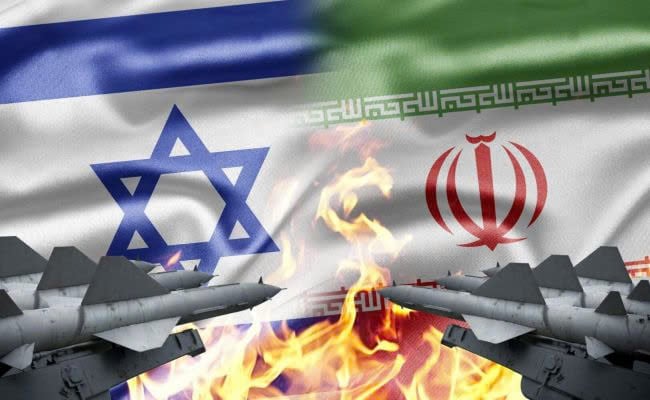
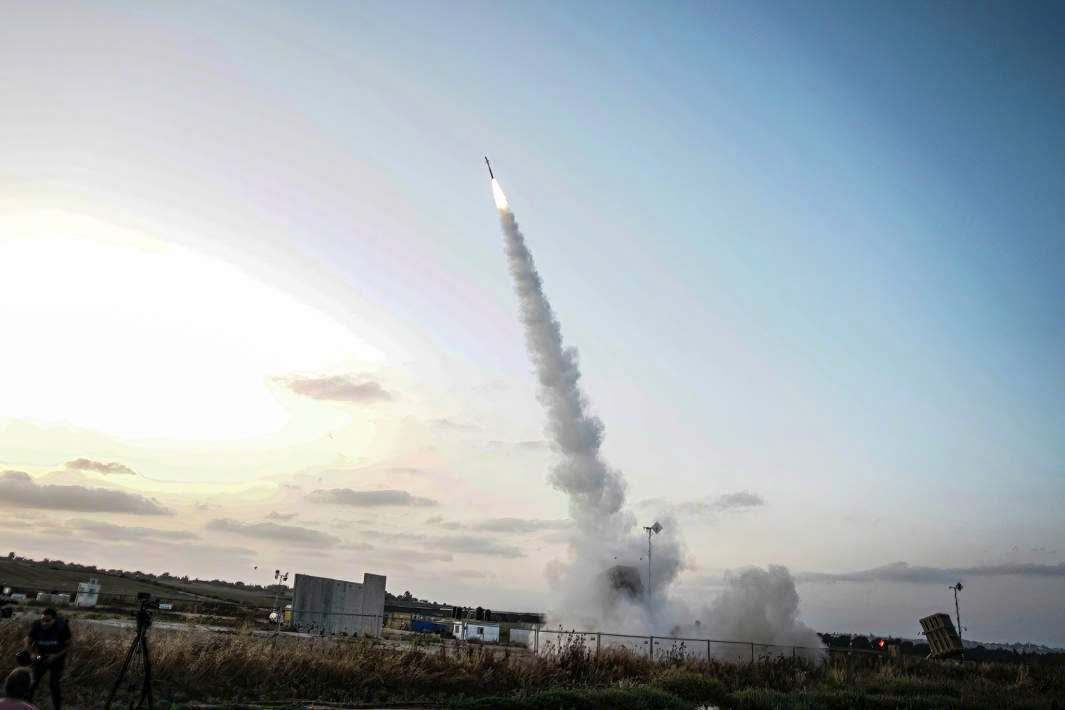

![[Photo] Da Nang: Hundreds of people join hands to clean up a vital tourist route after storm No. 13](https://vphoto.vietnam.vn/thumb/1200x675/vietnam/resource/IMAGE/2025/11/07/1762491638903_image-3-1353-jpg.webp)









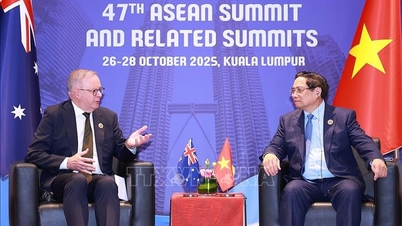



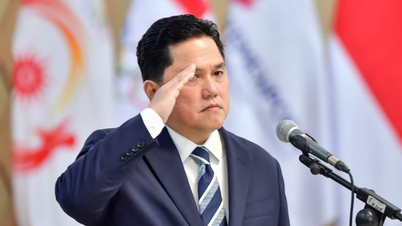

















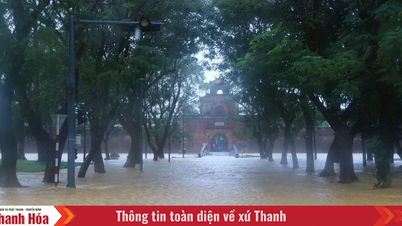






































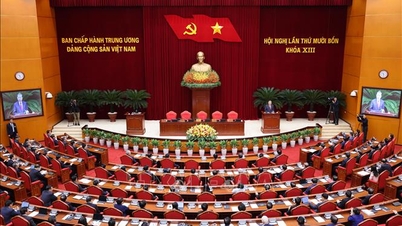

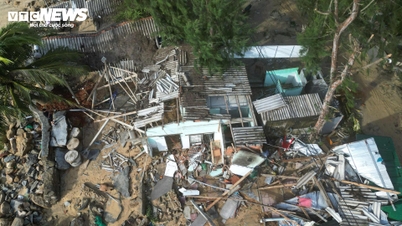



































Comment (0)